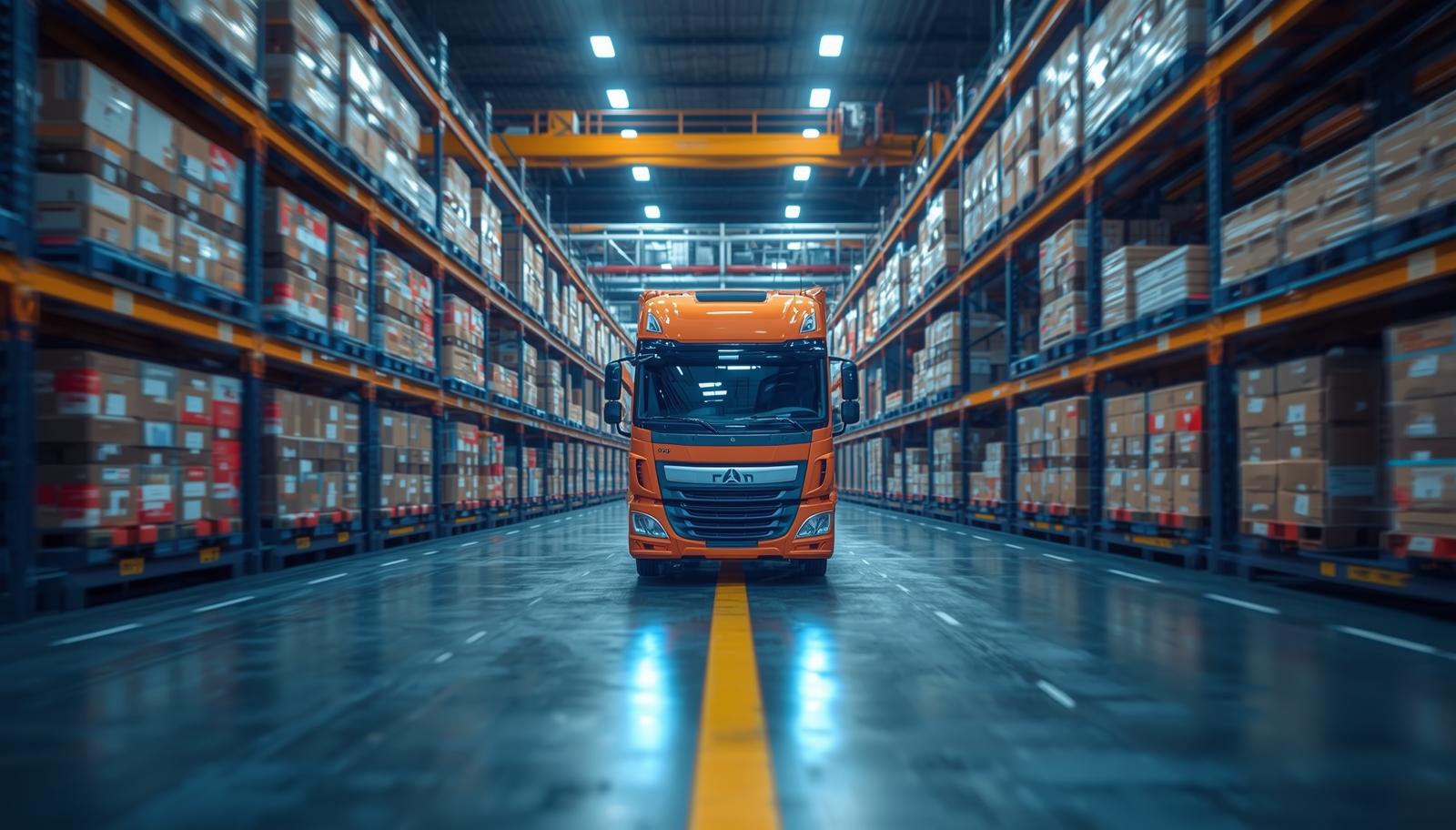
It is an undisputed fact that fuel forms the largest expenditure component for most transportation companies. This however varies across different operators since, in some cases, it can account for up to a third of total costs. So how do you decrease your fuel bill? The answer lies in understanding the main contributing factors and their interactions. Nevertheless, fuel prices constitute a considerable burden on trucking firms. Enhancing fuel economy can result in impressive cuts down on costs and a lowered ecological footprint too. To reduce fuel costs, we will discuss various aspects such as vehicle specification and maintenance, driver loyalty, and fleet management.
1. Maximizing Fuel Efficiency for Freight Drivers
Fuel consumption is the amount of gas a certain vehicle burns over diverse distances. The most common unit for this measure is miles per gallon (MPG). A truck with greater fuel efficiency can travel longer distances with less fuel leading to savings and less pollution.
Factors that Impact the Efficiency of Fuel:
- Weight of vehicles: Heavier vehicles use more gas.
- Aerodynamics: A greater drag caused by poor aerodynamics leads to a higher consumption of fuel.
- Engine Efficiency: When they are taken care of, engines work well and consume less petrol or diesel.
- Driving Behavior: Reckless driving and long periods in which a car is left running but not moving waste gas.
2. Essential Regular Maintenance for Optimal Vehicle Performance
It is important to maintain regularly to maximize fuel efficiency. The better the maintenance the better will be for these trucks’ lives. Below are some maintenance tips:
Routine Checks:
- Tire pressure: The fuel economy goes down with the increase in resistance caused by uninflated tires. Make sure that you check and keep tire pressure right at all times.
- Engine tuning: An engine that is well-tuned works efficiently. Always have an eye on its different components and replace them when worn out.
- Oil changes: Engine friction is minimized by clean oil only. Adhere to the manufacturer’s recommendations regarding when to change the oil.
- Air filters: A decrease in engine efficiency is caused by clogged air filters. Hence, ensure that they are replaced as required.
3. Enhancing Driving Techniques for Maximum Efficiency
The gasoline usage is impacted greatly by the way you drive. The following are driving tips that help to improve fuel efficiency:
Smart Driving Tips:
- Smooth Acceleration and Braking: Do not rush with acceleration or break hard. Do it smoothly to save on gas.
- Consistent Speed: Fuel consumption is reduced by maintaining a constant speed. On highways, one should use cruise control.
- Idle Reduction: For long stops, turn off the engine. It uses a lot of gas when left idling too much.
- Route Planning: To avoid traffic jams and road constructions, plan your routes well. These types of routes save on time as well as gasoline.
4. Leveraging Aerodynamic Enhancements for Better Fuel Efficiency
Fuel consumption is greatly influenced by aerodynamics. Reducing drag can result in significant fuel savings. Some aerodynamic improvements are as follows:
Aerodynamic Upgrades:
- Towing Skirts: These are drag-reducing installations along the sides of the trailer.
- Canopy Fairings: These structures deflect air from the top of the cab, thus reducing resistance.
- Rear Fairings: Adding fairings at the back of trailers helps in smoothing airflow leading to decreased drag.
- Wheel Enclosures: This covers wheels thus reducing turbulence which enhances aerodynamics.
5. Investing in Advanced Fuel-Efficient Technologies
There are many ways in which technology can help make fuels more effective. Long term, when invested in, these technologies can bring about savings:
Technological Innovations:
- Telematics Systems: These are systems that regularly offer updates on how much fuel is consumed at any given time and what kind of driving style is exhibited by the driver; hence they assist in identifying areas needing improvement.
- Automatic Tire Inflation Systems: These serve to maintain the optimal tire pressure hence saving on gas while increasing the life span of the tires themselves.
- Auxiliary Power Units (APUs): APUs provide heating, cooling, and other systems without involving the main engine thereby conserving energy.
- Hybrid and Electric Trucks: Investments in either hybrid or electric trucks can lead to immense savings on gas as well as reduced emissions.
6. Integrating Smart Fleet Management Systems
Fleet management systems (FMS) manage and monitor a fleet’s performance. Through them, we can learn critical information about the use of fuel and in this way, areas that can be improved.
The operational advantages of FMS are as follows:
- Fuel Monitoring: Monitoring fuel consumption and revealing inefficiencies.
- Route Optimization: Planning for the best possible routes with the help of data.
- Driver Performance: Analyzing driving behaviors and advising on ways to improve fuel economy.
- Maintenance Scheduling: Scheduling regular maintenance to maintain the trucks in their best form.
7. Exploring Alternative Fuels and Sustainable Energy Sources
Fuel savings and environmental benefits can be significant through the use of alternative fuels and energy sources. Here are some suggestions:
Alternative Fuel Options:
- Natural Gas: Compressed natural gas (CNG) and liquefied natural gas (LNG) are cleaner alternatives to diesel.
- Biodiesel: Made from renewable resources, biodiesel can be used in existing diesel engines with little or no modification.
- Electric Trucks: Fully electric trucks produce zero emissions and can be more cost-effective in the long run.
- Hydrogen Fuel Cells: These energy sources for transport hold promise for the future since they emit only water as their byproducts.
8. Drivers Training and Incentive Programs for Better Performance
The efficiency of fuel depends massively on how these drivers behave. Fuel-efficient driving styles can be promoted using training and reward systems:
Driver Training Programs:
- Eco-Driving Training: Instruct drivers on how to drive for optimum fuel economy, including steps such as smooth acceleration and braking, and maintaining constant speed among others while avoiding engine idling at all costs.
- Simulator Training: Make use of simulators to practice fuel-efficient driving in a controlled space.
- Regular Feedback: After every trip, drivers should receive feedback that covers their performances and fuel usage in general.
Programs for Incentive:
- Fuel Efficiency Bonuses: Reward those drivers who consistently achieve great fuel efficiency levels with bonuses.
- Recognition Programs: Identify and give incentives for eco-friendly habits among the drivers.
- Competitions: Create friendly competitions in which people drive their vehicles economically.
Key Takeaways for Trucking Companies
- Keep Up-to-date: Be in the know about new resources for saving gas and current trends in technology using less petroleum.
- Team Up: Coordinate efforts with other players in the industry so that you can learn from each other.
- Review and Change: Track fuel usage over time to observe how it improves or worsens.
Trucking firms can increase the economy of fuel consumption, save cash, and assist in conserving the environment if they adhere to these suggestions and approaches.
Conclusion
For the sake of cost reduction and environmental conservation, it is important that fuel efficiency in long-distance trucking is optimized. There are numerous ways of attaining considerable reductions in fuel consumption by trucking firms through regular maintenance, fuel-efficient motoring methods, improving aerodynamics, investing in advanced technologies, and alternate sources of energy. Fuel-efficient driving practices are also promoted by training and rewarding drivers. As a result, these strategies will contribute towards a less harmful and more profitable future for the long-haul trucking industry.
How Can Wahyd Logistics Help?
With expertise in Logistics and a long list of happy customers, Wahyd Logistics is always committed to providing seamless logistics services that cater to your business requirements.
We are here to offer you hassle-free and customized logistics solutions, so you can do more with your business while we handle all the challenging tasks!
Contact our logistics experts today and we will be happy to help with your logistics.






